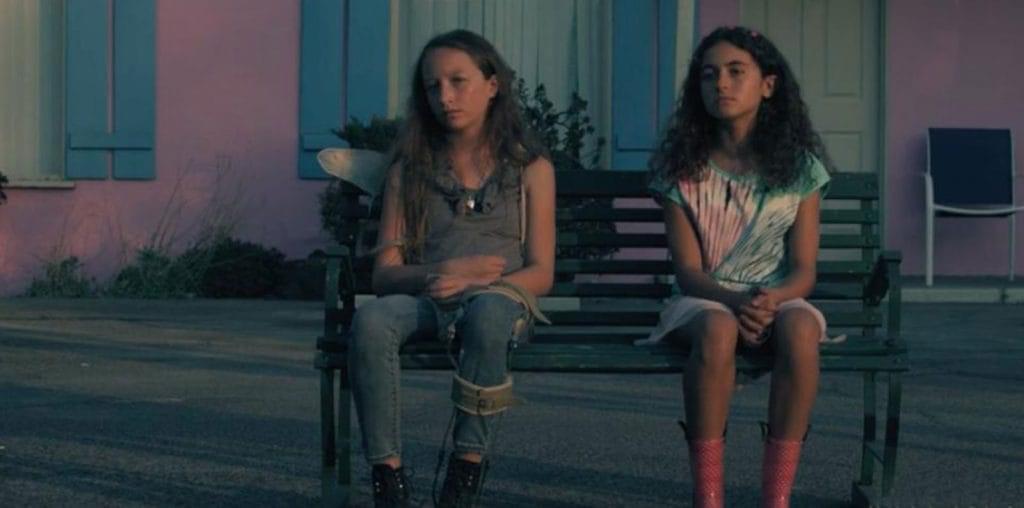
In a sense, this is not one twenty-minute film, but two ten-minute films.
The first film is a horror film. In it, the hero, Michael, starts off dead. Then things start to go very wrong.
Through a series of flashbacks, we learn a little about his history. His childlike thoughts on the human soul. His suicide.
And in the present, it seems that he either is crazy, or is just on the edge of Crazytown, and walking in the wrong direction.
Then the first film ends, with a fascinating twist, and the second one starts up – and instead of a horror film, it’s a science fiction film, wherein everything that happened in the first film is explained, and discussed, and theorized on.
Placed directly between these two films is the surprise that changes the film from the first type to the second, and while giving away that twist doesn’t hurt the film, it does take away some of the joy of watching it for the first time.
The director himself has no problem revealing this surprise, however, as his own website proclaims it. So I will say it here:
Michael discovers, halfway through the film, that he is a clone.
He attempted suicide, and though he was successful, his body and brain were, after a fashion, preserved. So a spare body, which had been grown without his knowledge, was brought out of storage.
Now, through a radio connection, his memories are being pulled from his first body into his second, which is why certain things he had been seeing took on, shall we say, odd and frightening secondary qualities.
This explanation, however, is only the beginning of Michael’s mental anguish. Now he has some conclusions to draw and decisions to make.
What are the ethics of cheating death in this manner? As a clone, does Michael have a soul? Does he share one with his former body? And since his former body is a vegetable, should he opt to stop life support for the person who is, in essence as well as in body, himself?
I said at the start of this review that “A Reasonable Hypothesis” was two films in one, and I stand by that. The first part scares you, and quite effectively, while the second half makes you think.
From the inside out, this is a remarkably effective bit of work. An idea that could have easily gone over the top, the possible horrors of a cloned human being, here is presented as an honest question.
While many people think that cloning began in the days of Dolly the sheep, the fascinating truth is that cloning of humans was discussed and attempted with damaged cells well before Dolly. And of course, the debate over what it means to clone a human being is, and will probably remain for years to come, a sensitive subject.
“Hypothesis” also attempts to deal with both the religious and scientific aspects of cloning, and does probably about as good of a job as anyone could. No one is demonized or immortalized for being the first clone, or the first doctor to clone someone. The people in this film manage to remain people, instead of becoming strictly archetypes, and this is quite an accomplishment in and of itself.
What’s most impressive, though, are the ideas the film makes you confront, and the fact that the possibilities you mull over in your mind might be more horrifying than the bogeymen on the screen.

